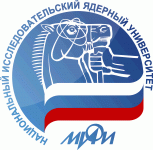
Communication in Multicultural Society
Dear colleagues and friends, The deadline for submissions has been extended till 7th November given the high number of requests.
City
Москва, Россия
Venue
MEPhI
Registration
Registration is closed
Keynote speakers
Keynote speakers
Raymond Hickey (University of Duisburg and Essen)
Multiculturalism in the English-speaking world
The present-day English-speaking world is characterised by many situations of multiculturalism. This is true of countries which are officially bilingual, like Canada with English and French, and it holds for multicultural countries like South Africa with 11 official languages. Increasingly, countries where English derives from second-language varieties are entering the arena of English-speaking countries, for example Singapore. In addition, there are countries and regions where English plays a significant role in public, official life such as Hong Kong or India. This lecture will examine the social and political position of English in these countries and point to the future of English outside the context of traditional English- speaking countries.
Kara Chan (Hong Kong Baptist University)
Culture and gender in marketing communication
This keynote address presented two studies on the interpretation of gender roles and identities in television commercials. Hirschman and Thompson’s (1997) three interpretive strategies were adopted for analysis. In the first study, 32 adolescents aged 15-19 in China were invited to interpret three advertisements depicting an elegant woman, an urban sophisticated female and a strong woman. In the second study, 48 adolescents and young adults in Hong Kong viewed advertisements with four different types of female images, including “flower vase”, “urban sophisticate”, “strong woman” and “cultured nurturer”. The studies shed light for marketers and advertisers engaging in global communication.
Eeva Sippola (University of Bremen)
Creole approaches to multilingualism
The talk focuses on multilingual communication patterns in the Chabacano-speaking communities in the Philippines. With case studies from education and language preservation contexts, we will discuss the political, social and linguistic parameters involved in using the creole in the multilingual communication situations. These allow a view on how linguistic resources are reiterated or appropriated as to newly form or reconstruct social stances, local and global affiliation, social positioning, and the construction of new and old ethnicities.
Zoya Proshina (Lomonosov Moscow State University)
Legitimacy of Russian English
The presentation will substantiate the argument that proficient Russian users of English speak Russian English, which is a variety within the family of world Englishes and cannot be associated only with stigmatized Ruslish spoken by uneducated communicators from Russia. As an exonormative variety, Russian English is characterized by a greater variability of standards (as compared with varieties native to their speakers). It is systematically distinct from other varieties, usually has certain traces of the Russian language native to its users, and is underpinned by the Russian culture and mentality. As such, it is used as a secondary means to single out Russian identity in intercultural communication.
Robin Cranmer (University of Westminster)
Including intercultural communication within foreign language teaching
This interactive workshop aims to help Foreign Language teachers improve the ways in which they include intercultural skills in their foreign language courses, but may also be relevant to anyone with an interest in intercultural education for life in a multicultural society. Three areas of intercultural pedagogy will be explored. The first will be syllabus design focusing on ways of adapting Language syllabuses to include intercultural skills. The second will be materials and activity design – a range of successful teaching materials and activities will be examined and participants will be invited to share their experience of good practice. Finally, the assessment of intercultural skills will be examined. By the end of the workshop it is hoped that participants will have a much clearer sense of how they can improve the intercultural element of their teaching.